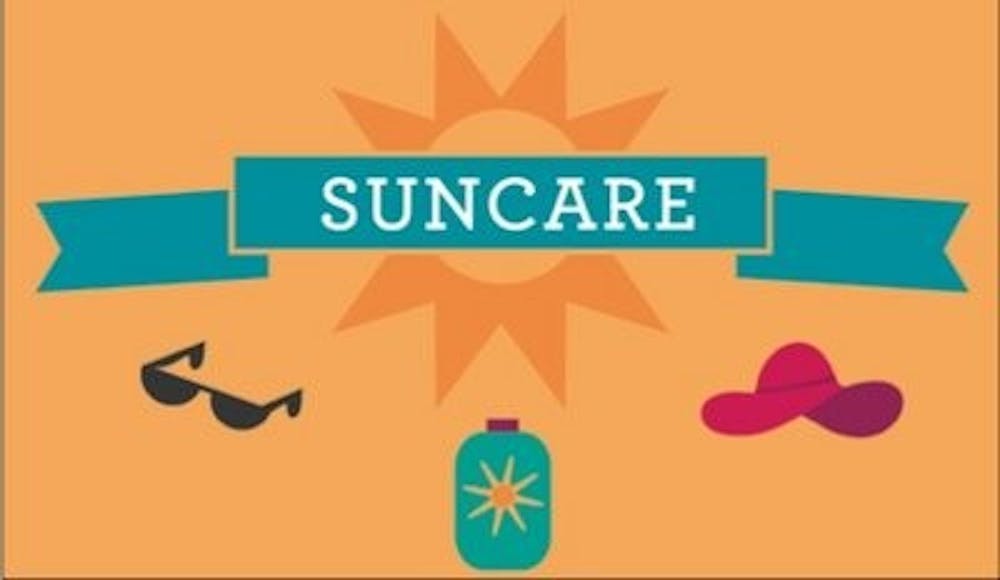Spring break is just around the corner, and Auburn students are crossing their fingers for lots of sunshine and perfect tanning weather. But with spring break come bad sunburns and multiple opportunities to irreparably damage our skin without even realizing it.
When it comes to protecting skin from the sun's rays, knowledge is power. We know the risks of too much sun, but understanding ways to protect ourselves can save us the trouble of wrinkles, brown spots and even skin cancer.
Adam Sturdivant, a co-director of Auburn's Health Promotion and Wellness Services, knows that the correlation between sun expo- sure and skin cancer is irrefutable.
"We often forget that our skin is our largest organ," Sturdivant said. "As our first line of defense from all sorts of microoganisms it is crucial that we properly maintain it."
Sturdivant stresses the importance of keeping skin protected and staying hydrated while out on the beach.
"Staying hydrated will help your skin keep you cool," Sturdivant said. "If your skin stops sweating, you are suffering from dehydration and should start chugging water indoors for a while. A good rule of thumb would be to reapply sunscreen as often as you refill your drink."
Director of Auburn's Health Promotion and Wellness Services, Eric Smith, is a skin cancer survivor and while doctors consider him "damaged goods," he's determined to help others avoid the same fate.
"When I was younger I was out in the sun all the time," Smith said. "I was a lifeguard and probably didn't wear sunscreen nearly enough. To this point, I have already had skin cancer once. The sad part is, it's totally preventable."
There are many ways to protect your skin, but Smith stressed the importance of sunscreen.
"Apply it about 15 minutes before you go out and reapply throughout the day," Smith said.
Sturdivant also emphasized the incredible importance of covering your skin any time you go outside. It doesn't take a sunburn to create a great tan. It's possible to achieve it simply by being smart and patient.
"If you want to have a summer glow, just go outside and enjoy the actual summer sun safely," Sturdivant said. "Wear lots of sunscreen at first, then you can use less toward the end of your trip to tan a little without as much risk of burning." Using and reapplying sunscreen is a simple task that can prevent a lifetime of future skin-related issues. \0x2028
According to The Huffington Post's "Twelve tips to Protect Your Skin," the FDA mandates that a bottle of sunscreen's sun-fighting abilities is effective for three years. That's how long you can expect a bottle to work at maximum strength; but when in doubt, throw it away.
Being aware of your sunscreen's effectiveness is extremely important, as well as knowing to reapply after activities such as swimming that may wash it off.
Another way to protect your skin is to stay away from tanning beds as they produce dangerous cancer-causing radiation.
According to The Skin Cancer Foundation, using tanning beds before the age of 30 can increase the risk of getting melanoma, the deadliest form of skin cancer, by 75 percent.
Rather than put yourself at risk, use other sunless means to create a healthy glow, such as bronzers, spray tans, airbrushing and lotions with SPF.
This spring break; try to remember that your skin is a living, breathing organ that deserves protection.
"If you see a fellow tiger who looks like they are turning a little crimson, be a pal and help him or her out," Sturdivant said.
Do you like this story? The Plainsman doesn't accept money from tuition or student fees, and we don't charge a subscription fee. But you can donate to support The Plainsman.





